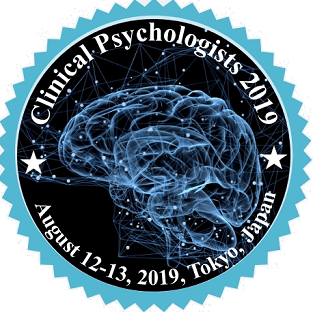
Dr. James C. Wilson
Schurig Center for Brain Injury Recovery, USA
Title: An Innovative Treatment Approach for Mild Traumatic Brain Injury
Biography
Biography: Dr. James C. Wilson
Abstract
According to the WHO and the CDC, Traumatic Brain Injury is one of the major causes of death and disability around the world. In the United States alone over 50,000 lives are lost every year, while hundreds of thousands of people are left with severe and lasting disabilities. Globally, Clinical Psychologists and other health practitioners, who themselves may have only limited familiarity with these conditions, are often faced with a lack of resources to aid clients in their recovery. The Schurig Center for Brain Injury Recovery, a non-profit center located near San Francisco, California, has created an innovative range of services to address the needs of adults who have sustained Traumatic Brain Injury (TBI) or Concussion (referred to as Mild Traumatic Brain Injury - or mTBI). The program consists of several key components: The Resource Center, the Post-concussion Education and Support Group, the Individualized Computer Treatment Program (ICTP), “Cog-Smart” - a compensatory skills training class, and a full-day Therapeutic Program (for moderate to severe brain injury). These approaches allow participants flexibility in accessing services to meet their individual needs. The aim of the Post-Concussion Education and Support Group is to provide accurate information about mild traumatic brain injury, and direct clients to suitable sources of care in the community, at the same time addressing the altered sense of self, a common psychological reaction among survivors. This presentation highlights the the Center’s treatment methods and we will present both pre- and post-treatment clinical outcome data showing the efficacy of the Post-Concussion Education and Support Group. Finally, we present a case study which illustrates the benefits that these services provide in helping clients recover and cope with the long-term cognitive, behavioral and psychological consequences that often impact their work, family, and personal lives.

